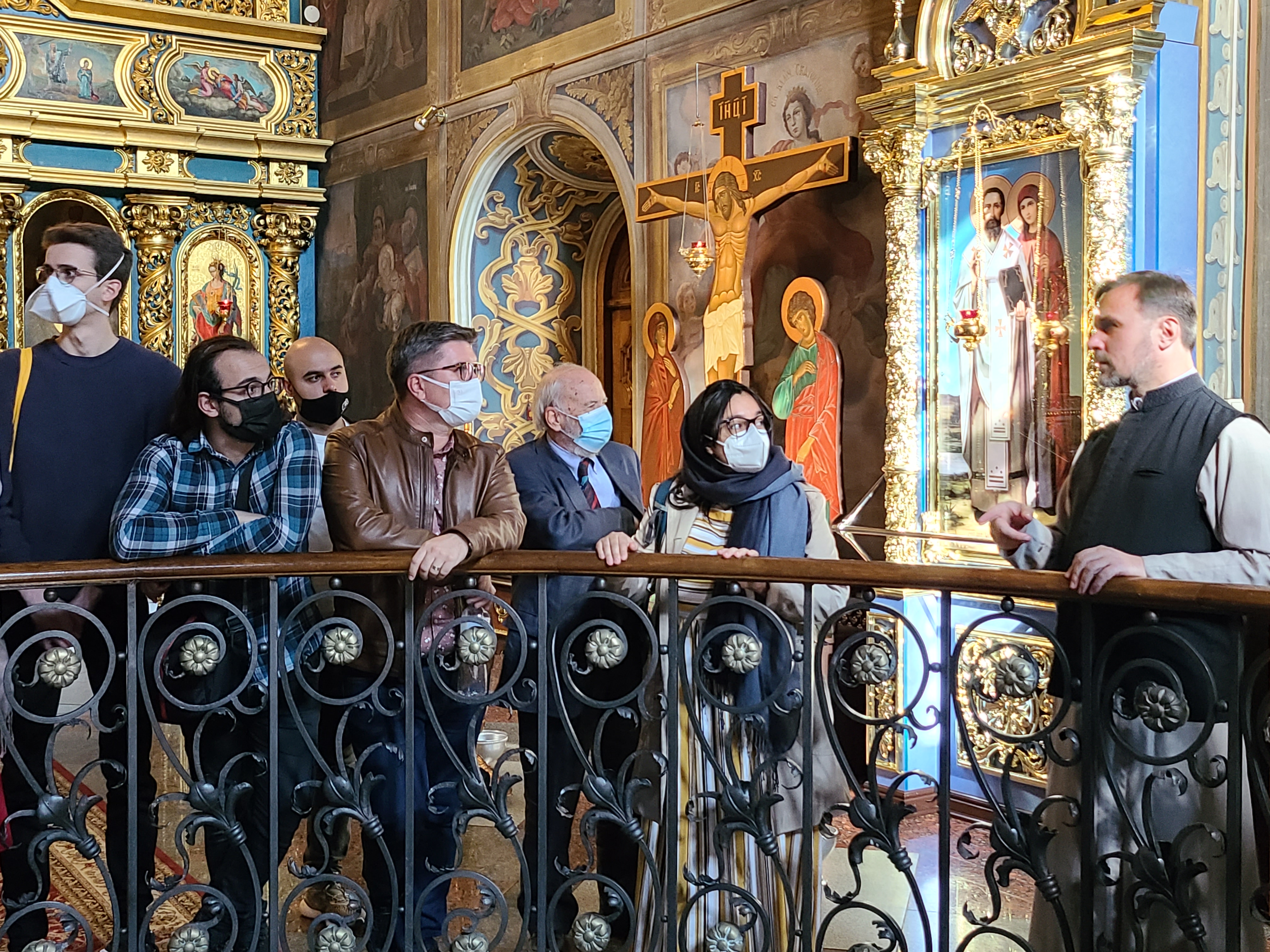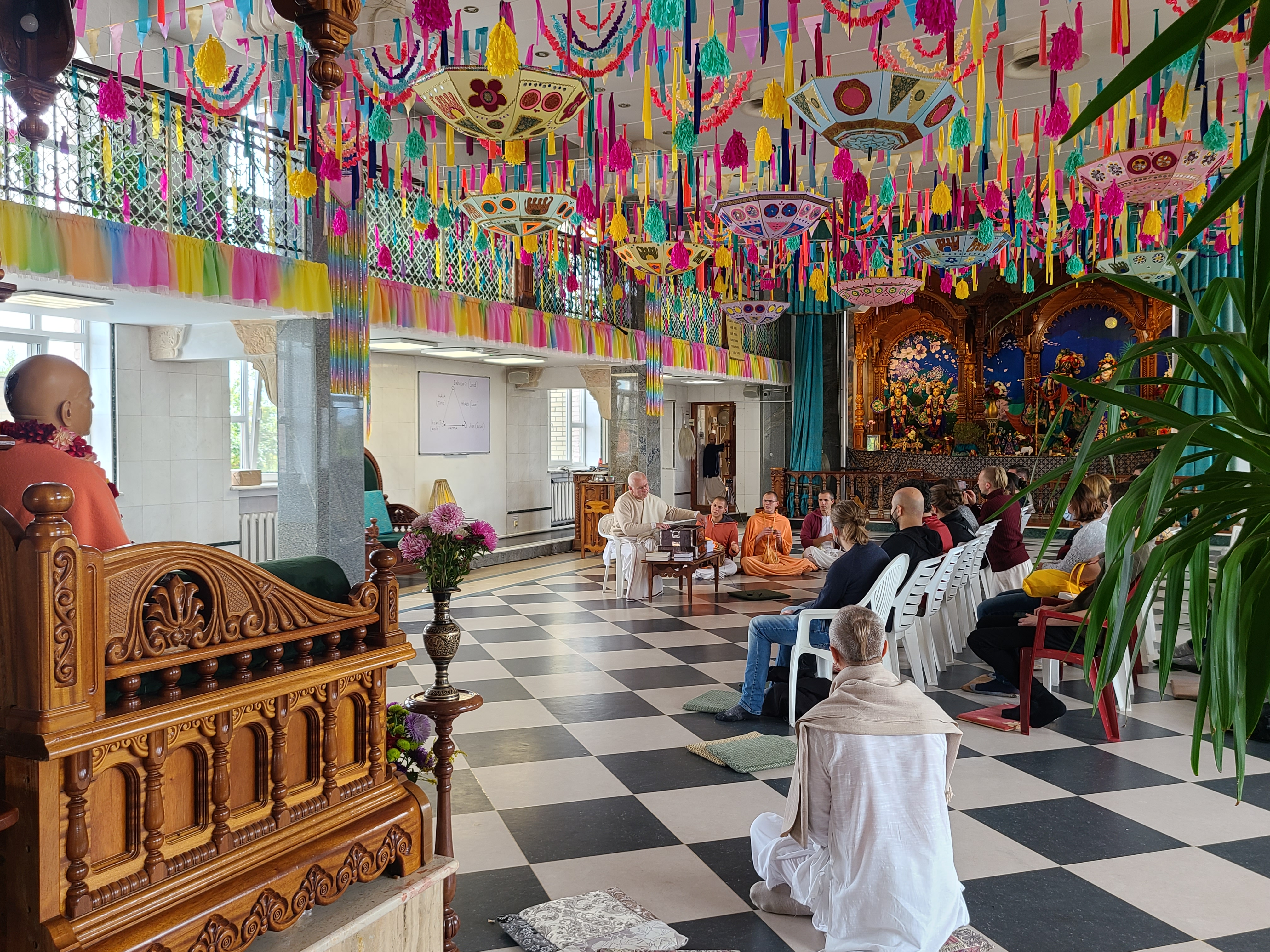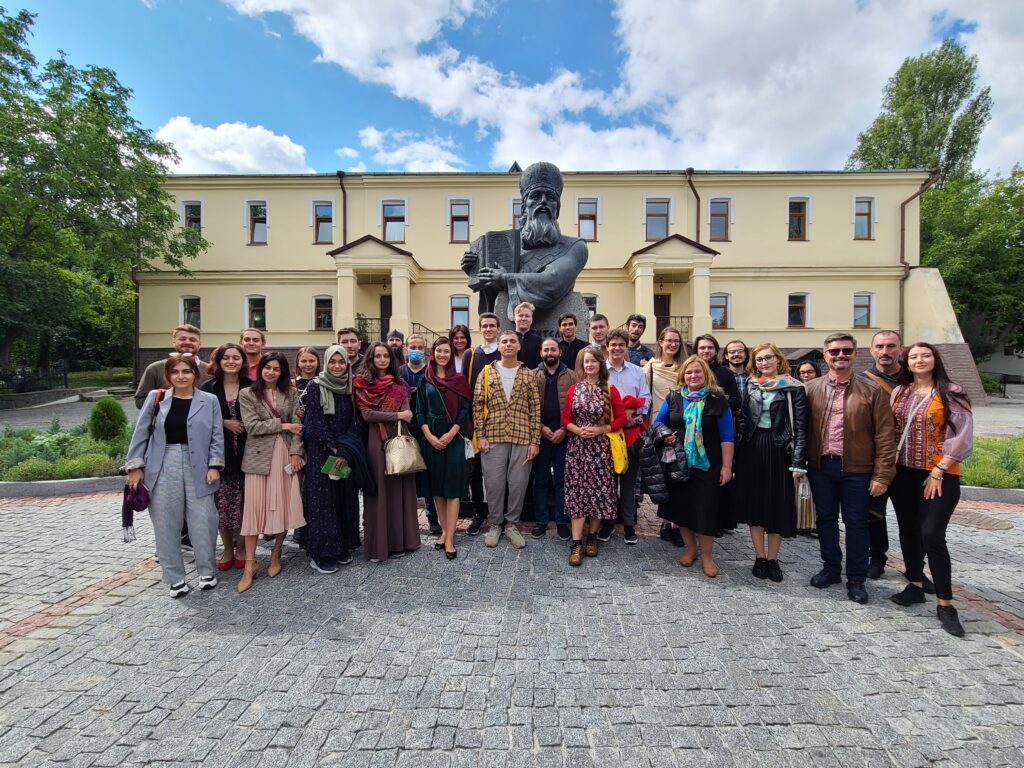by Nadiia Sybira, Cohort XI
 |  |
JPII Leader Nadiia Sybira (Cohort XI, Ukraine) reflects on her participation in the training course “Union and Diversity: Ad Dialogum Religiōsum“ organized by another JPII Leader Nataliia Pavlyk (Cohort XII, Ukraine) and hosted by NGO The Oriental Studies Circle in partnership with the John Paul II Center for Interreligious Dialogue in Kyiv, Ukraine.
This 10-day interfaith training course, funded by the European Commission within the framework of Erasmus+ program, was a great opportunity for youth workers and leaders to share their knowledge, develop new skills and attitudes in the sphere of interreligious dialogue. The daily program was facilitated by experienced trainers from Armenia who knew how to promote participants’ creativity during brainstorming, role-plays, and energizers. They certainly inspired everyone in further interfaith activities and projects in their own countries.
The group of 30 participants from 10 countries was quite diverse: Argentina, Armenia, Georgia, Germany, Greece, Jordan, Italy, Romania, Turkey, and Ukraine. One of the evenings was dedicated to presenting different cultures, tasting national dishes, singing traditional songs, and learning new dances. Nadiia says, “It was a unique experience to see the unity between Europeans, inhabitants of the Near East, Caucasus region, and Latin America. We had a lot of fruitful sharing about interreligious situations and reconciliation, both group and individual discussions.”

During the interfaith field visits, participants have managed to raise their spiritual sensitivity through exploring Orthodox and Greek-Catholic Christianity, Judaism, Hare Krishna’s movement, Buddhism, Islam, and Ukrainian Native Faith. “This trustful exchange helped us better visualize the principles of constructive dialogue between religions. We appreciated the efficiency of real-life human contact through sharing meals and giving personal testimonies,” emphasizes Nadiia.
Nadiia Sybira believes that such training courses will inspire to create possible solutions to the problem of interfaith clashes as the role of religion is often misunderstood or even misused. With the network of newly gained friends and partners in this training, the participants can now work together in creating a strategy for interreligious dialogue on the global scope.
